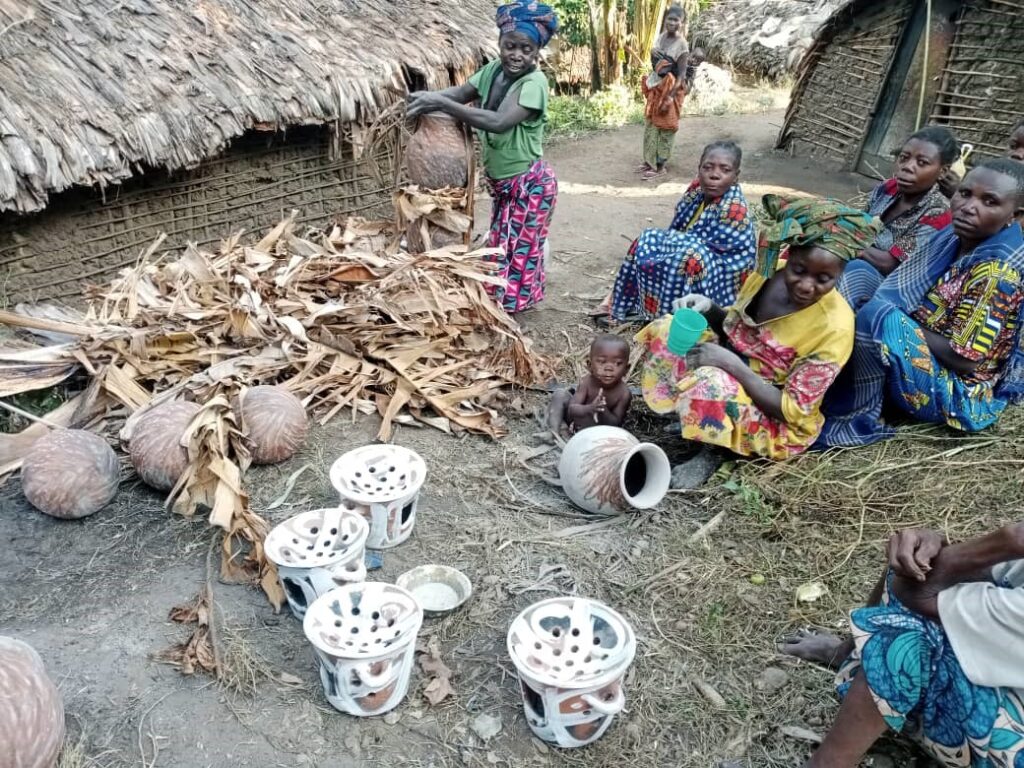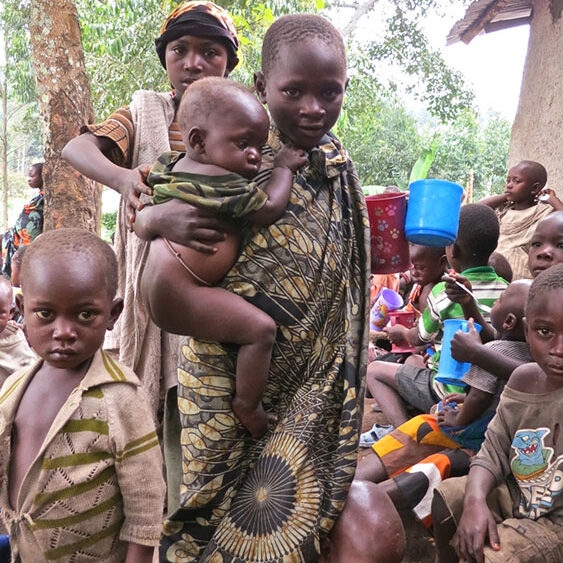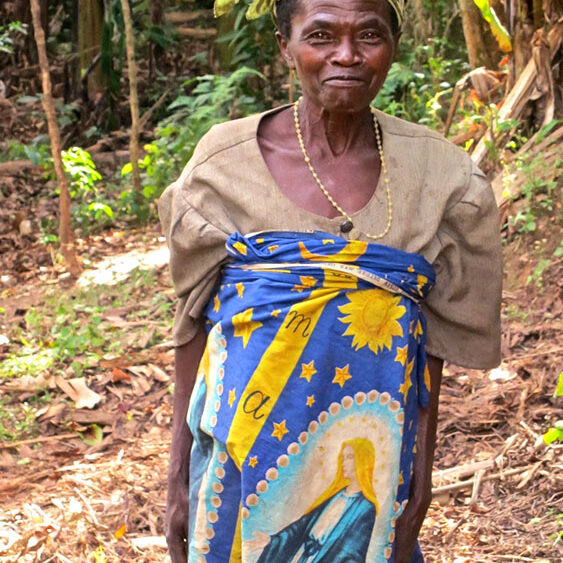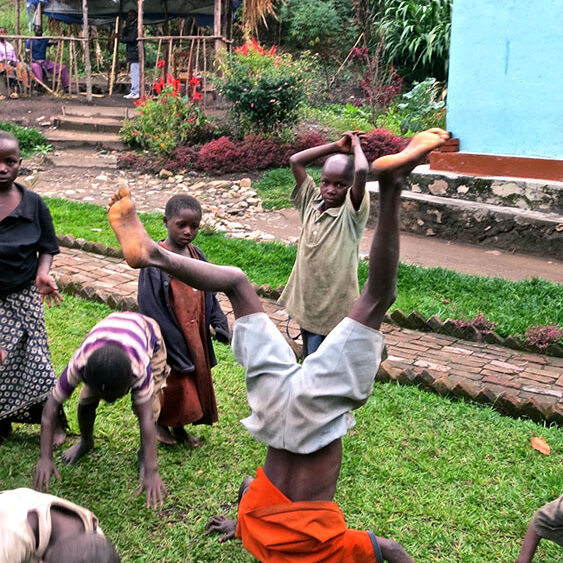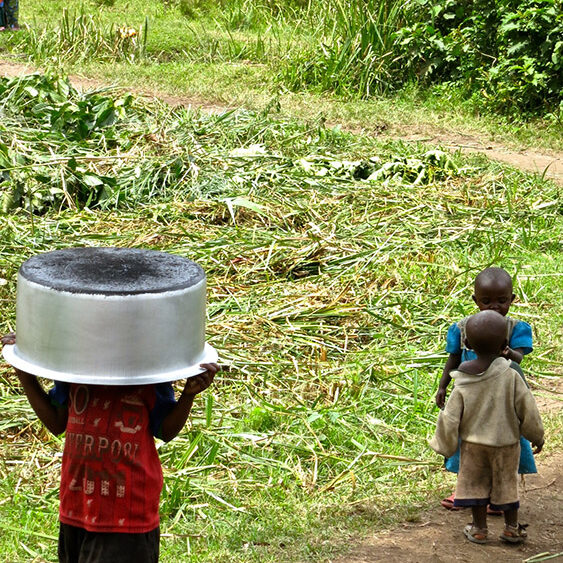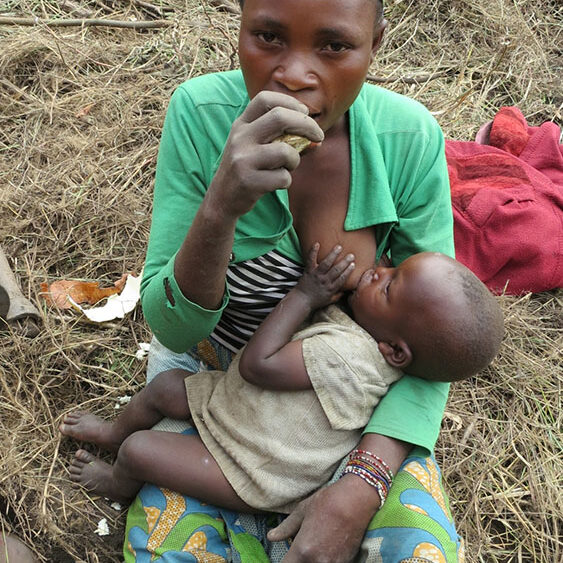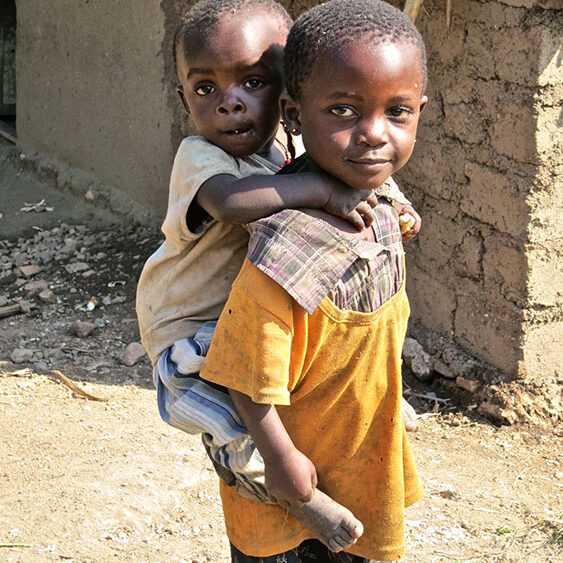The Long Road Home
Bahati walks. He walks for hours each day—along the dusty loop that traces the slender perimeter of Idjwi Island in Lake Kivu, past cassava groves and banana fields, through a landscape as quiet as it is forgotten. He walks because there is no other choice. The roads are not paved. The hospitals are not near. And the people he represents—the PA, or Peuple Autochtone—are scattered in 24 remote encampments across this 40-mile stretch of Congolese land.
In Kihavu, Bahati’s mother tongue, his name means “luck” or “chance.” Nearly 40, he sees both in his story. He is the eldest of eight siblings—and the only one still alive. That survival, he says, has left him with a debt. Not a financial one, but something more ancient: an obligation to serve, to witness, to give his people what they’ve been denied for generations—a fair chance.
The Long Road Home
The PA are the Indigenous people of the Democratic Republic of the Congo. Traditionally nomadic hunter-gatherers, they carry within them a vast, often disregarded body of ecological wisdom: native plants, medicinal herbs, sustainable architecture, and hand-crafted ceramics that draw on a knowledge base shaped not by books, but by centuries of observation and adaptation. They live close to the forest, not out of necessity, but by design—choosing proximity to birdsong and biodiversity over modernity’s hollow promises.
Yet they are a minority on Idjwi, a sliver of land with a population of roughly 300,000, the majority of whom belong to the Buhavu ethnic group. The relationship between the Buhavu and the PA is often strained. When tensions flare, it is Bahati who mediates.

When a PA elder falls ill, it is Bahati who lifts them on his shoulders and carries them miles to the nearest clinic—sometimes in vain. Twice a year, he is required to visit all 24 PA settlements to file a report on their conditions. He does it all on foot.
What Bahati needs is not complicated. He needs a motorbike.
In this part of eastern Congo, a motorbike isn’t just transportation—it’s survival. It is faster aid, more efficient diplomacy, and for Bahati, the difference between arriving as a representative and arriving too late. But the cost—roughly $2,000—is far beyond his means.

This fundraiser seeks to raise those $2,000. The appeal is simple: Help Bahati get where he needs to go.
But its implications are broader.
To invest in Bahati is to invest in a way of life that the world has too often ignored. It is to acknowledge that the PA—like so many Indigenous groups—hold keys to sustainable living at a time when the planet is in crisis.
Bahati is not asking for charity. He is offering an exchange: your support, in return for the preservation of a living wisdom, a culture in harmony with nature. It’s a chance—for Bahati, for the PA, and perhaps, for us all.
